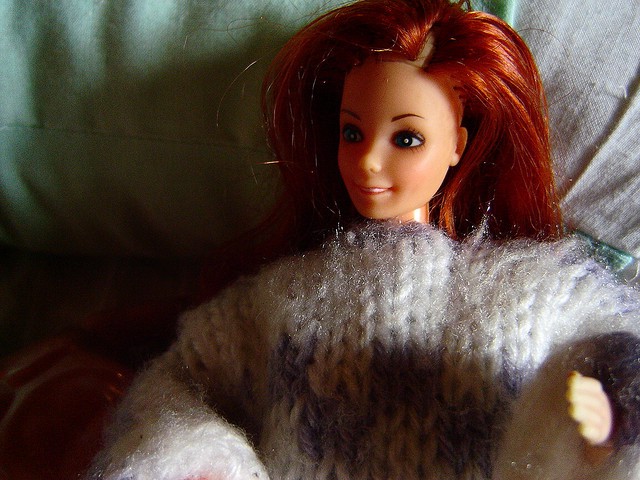The Infinite Lives of 'Jolene'
by Casey N. Cep

Dolly Parton does it all in only two hundred and two words. Eighty-four fewer than the Gettysburg Address; one hundred and thirty-six more than the Lord’s Prayer. Two hundred and two words, one of which is repeated thirty-one times: Jolene. Parton wails her name like a banshee. Five times Jolene; once Jolene, Jolene; six times Jolene, Jolene, Jolene, Jolene. Parton says the name Jolene thirty-one times in less than three minutes. It’s a story song, and the story is as familiar as they come. Where there was happiness, now there is heartache. A woman loves a man, but that man loves Jolene; the woman confronts Jolene and pleads with her not to take the man. That is all.
I don’t know when I first heard the song. It used to creep onto country stations like kudzu and that is all we listened to when we listened to the radio. I doubt I knew what adultery was when I first heard it. I certainly couldn’t imagine what it would be like to hear the name of another from the sleeping lips of the one you love.
But that didn’t stop me from howling all those long syllables. “I have to have this talk with you,” Jo-leeeeeeeene. “I’m begging of you, please don’t take my man,” Jo-leeeeeeeene. “Please don’t take him just because you can,” Joe-leeeeeeeene. “I cannot compete with you,” Jo-leeeeeeeene. “My happiness depends on you,” Jo-leeeeeeeene.
Some women, I suppose, identify with Jolene. Those whose “beauty is beyond compare” might easily imagine themselves into the role of a temptress, but mine is not, so even before I had a lover to lose, I found myself comfortably in the role of the desperately discarded, the frantically forlorn. It is hard to believe that Dolly Parton’s husband never strayed with the flirty red-haired bank teller who inspired the song, since the lyrics capture so perfectly what it is like to lose the one you love, even while that one is still sleeping in your bed.
Parton recorded “Jolene” in June of 1973, and released it in October. By November, it was the number one song on Billboard’s country chart. Since then, every singer who has ever been anywhere near a microphone has covered it. Parton has said that Mindy Smith’s version is her favorite, though she seemed pretty pleased to sing it with her goddaughter, Miley Cyrus. Parton has also said “because it’s just the same word over and over, even a first-grader or a baby can sing, ‘Jolene, Jolene, Jolene, Jolene.’ It’s like, how hard can that be?”
A baby might be able to learn the lyrics, but the song has been tortured and abused by so many of these covers. Three years after Parton released the song, Olivia Newton John offered her own version; her spiraling disco twang didn’t improve on the original. Three of the least offensive covers are by Alison Krauss, Reba McEntire, and Sherrié Austin. They borrow the song the way you’d borrow clothes from a best friend: taking great care not to stretch or stain what they’ll never own.
Most of the “Jolene” covers are natural disasters: You can’t look away, and even though you know they happen often, every one is its own fresh three-minute tragedy. I’ve never watched “American Idol,” but if you do, then you might remember this performance by Jessica Meuse, who tried to make the song into some sort of power ballad. No better or worse, I guess, than what Ellie Goulding did a few years ago, making Jolene into a kind of Joe Lean, some rail-thin dogcatcher come to steal your prize poodle. Even the television show “Glee” took a turn, somehow wringing every drop of emotion out of song completely soggy with it; it’s only tolerable in the manipulated version made by some fairy-godmother-of-a-YouTube user, speeding it up to end the tragedy more quickly.
Everyone seems to know and love what Jack White has done with. He slows the song and reverses the roles, crooning as a cuckolded man pleading with Jolene not to take his friend. It’s the deferential version of what Jennifer Nettles tried to do last year with her song “That Girl.” Her role reversal rewrote the song from Jolene’s perspective. It’s a terrible song, with Nettles repeating in dark, brooding swells that “I don’t want to be that girl,” meaning the kind who steals another woman’s man; Jolene is drained of all her power, the helpless prey of a powerful man, come to beg forgiveness from that man’s husband.
Only a few years before, Nettles had already written the answer to the question of “Jolene.” I have no idea why she felt the need to write another song when “Stay” was already the perfect confessional plea from the perspective of the adulteress. There, Jolene, though never named, is herself trying to keep the man, and pleads with him not to leave. Nettles claims “Stay” was inspired by Reba McEntire’s “Whoever’s in New England,” but it’s so clearly the counterpart to “Jolene.”
But for all the covers and sequels, the best version of “Jolene” is one made of, but not by Parton. “Slow Ass Jolene” was uploaded to YouTube in 2012, and now has over two million views. It’s Parton’s original recording, but stretched like taffy. What we used to do with turntables, the user does with Dolly Parton’s voice: dragging it from the soprano to the alto range, slowing it to near standstill. It’s beautiful and strange, even more haunting than the original song. There aren’t many songs with as many afterlives as “Jolene,” but then again there aren’t many songs like “Jolene.”
Casey N. Cep is a writer from the Eastern Shore of Maryland.
Photo by Clarissa Rossarola
